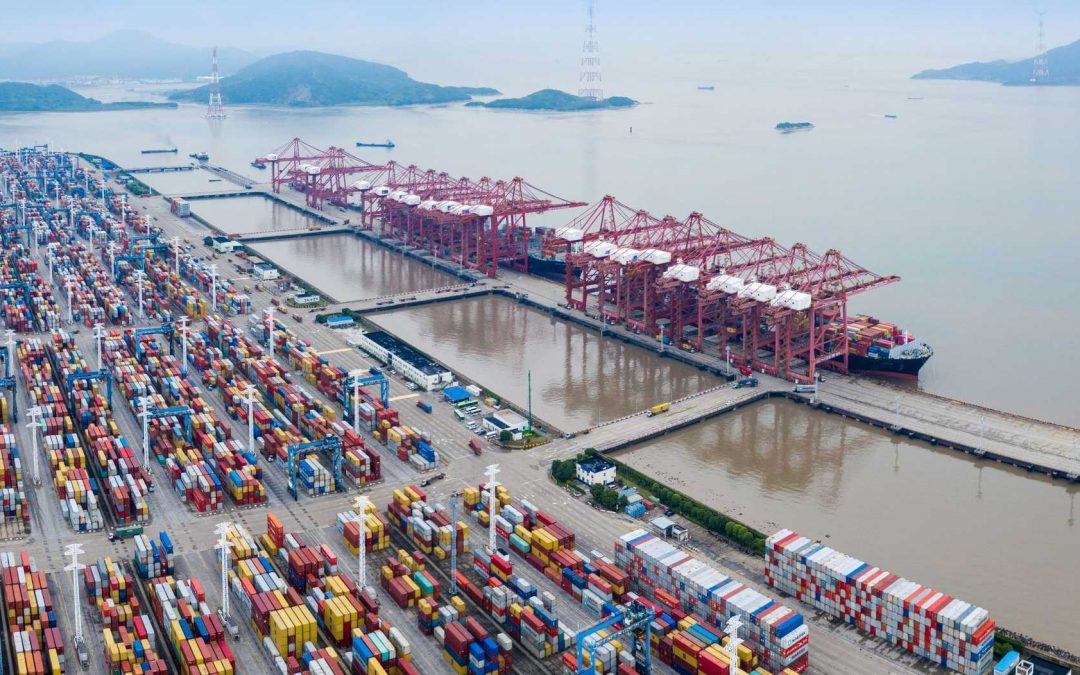Rates for shipping containers from east Asia and China to the US continue to face downward pressure after an early end to the peak pre-holiday shipping season, but backlogs at some East Coast ports following a 3-day strike could lead to short-term delays.
Rates to the US West Coast edged lower by 3% this week, according to online freight shipping marketplace and platform provider Freightos and as shown in the following chart.
udah Levine, head of research at Freightos, said transpacific rates are now down by 30% from the peaks during July but remain several thousand dollars higher than what would be typical peak season rates.
They are also about $1,000/FEU (40-foot equivalent units) higher than the adjusted floor set in April to account for diversions away from the Red Sea.
“As long as Red Sea diversions continue to absorb capacity on an industry level, prices may not fall much further than seen back in April,” Levine said.
Container ships and costs for shipping containers are relevant to the chemical industry because while most chemicals are liquids and are shipped in tankers, container ships transport polymers, such as polyethylene (PE) and polypropylene (PP), are shipped in pellets.
They also transport liquid chemicals in isotanks.
PORT CONGESTION
The International Longshoremen’s Association (ILA) strike at US Gulf and East Coast ports lasted just three days, and market analysts initially expected backlogs created by the work stoppage to be cleared up in two to three weeks.
Some ports, such as the Port of New York/New Jersey, were expecting to be back to normal sooner than that.
But Levine said the backlog at the Port of Savannah, Georgia still needs another two weeks to get back to normal as Hurricane Milton added to the number of waiting vessels.
Ships are waiting more than two days to get into Savannah, and Levine said other ports are citing delays of one to four days, which he termed as significant congestion, but not extreme.
Port Tampa Bay remains closed and is expected to reopen on Monday after damage caused by Milton, which will mostly impact the fertilizer industry.
Levine said that some carriers have announced blank sailing in response to the congestion, but this may also be aimed at reducing capacity to adjust for the lower, post-peak season volumes.
Source: ICIS BY Adam Yanelli






